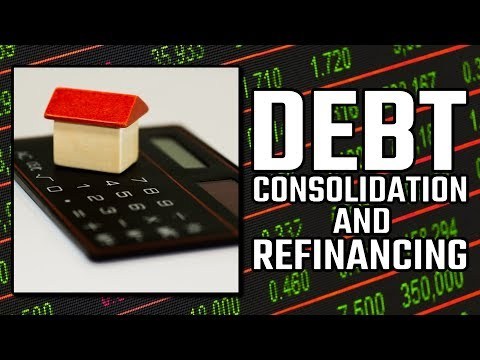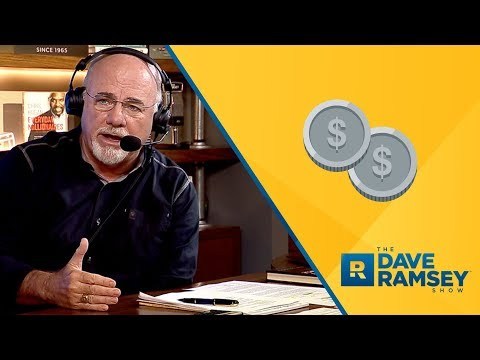Don't wanna be here? Send us removal request.
Text
Some Different Uses For a Refinance Car Loan
Following months in the works, HARP 2.0 is offered to Fannie Mae and Freddie Mac customers who would like to re-finance mortgage loans however have borrowed more on their home mortgage than their residential or commercial properties presently are worth.

HARP 2.0 HARP shows the Home Affordable Refinance Program is being scheduled as an enhancement over the three-year-old edition that virtually everyone acknowledges didn't help anybody.
The reason for that breakdown: The original program had limits on loan-to-value proportion, the amount of a bank loan as a proportion of the assessed financial worth of a home. If the balance of a home mortgage exceeded the assessed worth say, $ 300,000 vis-a-vis $ 150,000 the purchaser wasn't permitted to re-finance.
Recognizing that not one of the buyers the program was implied to help would have the ability to qualify, the limitations were dropped when the new version of HARP was announced in October.
Does that suggest all financial institutions have accepted no limitations?
" I have loan providers that have actually limited the loan-to-values. Some have even differentiated in between attached and removed houses," stated Philadelphia home loan broker Fred Glick, who has begun a blog, to upgrade consumers. "They still are limiting what they will do" with loan-to-value ratios of 150 percent and no more.
" All in all, it is a fantastic method to get people's rates down in spite of low values," Glick said. "This will reduce the supply of houses for sale and boost worths over the long term."
Just like each of such schemes, the reasonable amounts of time ever since HARP 2.0 was stated have actually absolutely been invested trying to get loan companies on board no simple job given that Fannie and Freddie's loans are pooled as mortgage-backed securities that are owned by numerous financiers. All the financiers need to agree before customers can apply to lower month-to-month payments to today's low fixed rate of interest, which remained under 4 percent for lots of months now are starting to increase as bond yields increase in an apparently improving economy.
As of March 17, HARP 2.0 has remained in place to assist keep property owners above water. About 4 million Fannie Mae and Freddie Mac customers nationwide owe more on their home loans than their houses are worth.
The federal government has a website, (link) that has particulars about HARP 2.0 and extra details.
Undersea extensions might likewise be certified to remortgage under arrangements of the present National Home loan Settlement. That concerns loans neither owned by Freddie or Fannie nor covered by the Federal Real Estate Administration, which has its own structured refinancing strategy under a program announced in January. Information of that settlement are being worked, and qualified loan providers will be informed by the five taking part banks Wells Fargo, Bank of America, JPMorgan Chase, Ally Financial, and Citibank at some time.
To end up being eligible for HARP, homeowner need to be existing on their home mortgage. That means paid completely approximately date, with no past due settlements in the previous six months and only one in the previous 12. They also have to reveal that they can pay for the new settlements obtained with refinancing without any trouble.
Debtors should have closed on their present home mortgage on or prior to May 31, 2009, and can not have re-financed through HARP before. Additionally, home loans should fall under existing "conforming-loan limitations," that vary by area.
Something both Fannie and Freddie want to see is whether buyers re-finance to loans with terms lower than thirty years. They call this "motion to a more stable item."
Clients with an interest-only loan will be urged to re-finance to a home loan item that supplies amortization of capital and collection of capital in your home.
youtube
People who have a variable-rate mortgage will be endorsed to re-finance to a fixed-rate loan that eradicates the potentiality for payment shock, or to an adjustable with a preliminary fixed duration of 5 years or more and equal to or higher than the existing mortgage.
Home owners with a 30-year fixed-rate home mortgage will be alerted to remortgage to a 15 -, 20 - or 25-year milebrook financial bbb fixed that provides, in Fannie Mae's words, sped up the amortization of principal and equity building. But debtors won't be authorized to liquidate equity under this refinancing "besides closing costs and particular allowances to cover products particularly association costs, property tax expenses, insurance expenses, and rounding changes."
Plus, customers might not reimburse secondary financing in the form of a home-equity credit line or a closed-end second home mortgage with the proceeds of the refinance mortgage.
Balloon home mortgages and convertible adjustable-rate residential or commercial property loans are eligible for HARP 2.0 if the contingent right to remortgage the balloon or convert the ARM was exercised by customer and "redelivered" to Fannie Mae before June 1, 2009.
0 notes
Text
What Will It Take America?
You might not realise it, but almost every individual over the age of 18 has some kind of financial obligation nowadays. When you're younger, it might be a trainee loan or potentially even loan borrowed from your moms and dads that they 'd like you to repay (some day!). As you gain duty and move into a flat or house, it'll be the costs you pay like rent, council tax or energies. And as you start a household and have kids, it'll most likely wind up being a home mortgage on a home, a number of charge card and maybe even a loan or some sort of financing agreement for an automobile.
While it may appear apparent that all these things have actually to be paid for however, the fact of the matter is that often, your finances simply don't appear to be able to cover all the things you want to do. Perhaps you prepare severely and simply happen to lack loan midway through the month, suggesting a couple of bills go overdue; maybe something fails at work and you don't get adequate cash to pay the lease for the month; or, heaven forbid, you choose you've got much better things to invest your income on and end up pushing your monetary dedications to one side (believe us, we have actually seen it occur!). Whether they're unexpected or intentional however, these are all http://edition.cnn.com/search/?text=https://www.forbes.com/sites/lizfrazierpeck/2018/03/19/five-reasons-debt-relief-programs-cause-more-pain-than-relief/#485d370440c9 situations you wish to prevent - if you don't, you'll not just be kick-starting a chain of occasions that'll leave you even further in debt, but also end up with a bad credit mark on your credit rating.
youtube
Obviously, things can typically only get even worse if you let bad credit debt get out of hand. A few missed costs trigger financial obligation to develop to a level that you can't afford in a single payment, which then cause your other debts to suffer, which then develops more bad credit on your record. This then makes getting loans to cover your debts more difficult, which just develops more problems considering that you then have mounting debts and nowhere near adequate cash to cover them. It appears like an unlimited spiral and, to be fair, it can be if you do not do something about it rapidly enough. Fortunately however, there are a number of methods of stopping yourself drawing out of control ...
The very first is rather obvious: do not miss out on payments on any debts you have in the top place! This might imply cautious management of your earnings if you're only just making enough to cover the costs, awareness of what you're using in regards to energies to keep bills down (for instance, energy displays are beneficial for lowering electrical power costs and switching to a pay-as-you-go mobile can prevent you adding massive phone charges without realising it) and even changing your tastes in groceries to something more economical (think it or not, the 'value' ranges that grocery stores have typically taste simply as great as name brands and are sometimes even much better for you!). However you handle it though, living within your methods is the very best method to prevent slipping into bad credit and having debts accumulate around you.
If, however, you're currently at the phase where financial obligation is beginning to accumulate but you have not slipped into bad credit yet, now's the time to take charge of things. For starters, don't simply sit on your hands and hope everything disappears - phone up the people you owe cash too and talk with them about your scenario. In nearly all cases, they'll want to listen and possibly even help by arranging a spread of payments to cover what you currently owe; you will not be the first individual to have such issues with payment and you definitely will not be the last. Depending upon just how much you owe, it might also be worth using the services of a financial obligation management business. Such companies are devoted to assisting individuals with debt issues, no matter how bad they might be, and can frequently help arrange all your financial obligations into a single budget friendly month-to-month payment, helping alleviate the pressure that debt can put on you. Obviously, you still need to maintain these regular monthly payments once arranged, they're typically low enough to give you a little breathing space with your finances.
Lastly, if things get truly out of hand and you end up with bad credit on your record, then the crucial thing is to fix your credit ranking as soon as possible while likewise handling your debt. Again, this could be done through a financial obligation management company or, if you wish to go it alone, managed usage of a Bad Credit Loan (which can provide you enough cash to clear all your financial obligations, but features a higher interest rate than traditional loans and still needs routine payments). If all else stops working however, the only options left would be either to secure an IVA - an milebrook financial legit Individual Voluntary Plan, which is legally-controlled type of financial obligation management with extreme controls over it - or to declare yourself insolvent. While both have their own appeals, they likewise have major repercussions on your credit rating because such decisions stay on your record for a minimum of 6 years, making it hard for you to get credit somewhere else in spite of essentially being debt-free. As such, these techniques ought to be thought about as a 'last-ditch' option and just be undertaken in severe circumstances.
In Summary

Bad credit financial obligation ...
Isn't the never-ending cycle that it appears to be!
Can happen to anyone, not just those with lower incomes
Could prevent you from securing loans or other types of credit
Is escapable through mindful control of your finances
May eventually require debt management, a Bad Credit Loan or more extreme means to leave
Need to be managed properly to prevent your circumstances getting even worse.
0 notes
Text
7 Ways to Get Out Of Debt and Start To Live Debt Free
Let me ask you one concern:.
Why do you wish to leave debt?
You're here on this blog for a reason. To discover if my challenge and battles will assist you make peace with your debt and get you out of the red and back in the saddle with your finances.
However you require to ask yourself one concern - why? More precisely, what is the driving force behind you wanting to get out of financial obligation? Is it because it's "the thing to do" or "no one likes debt anyway"? If it is then you'll discover yourself stopping working at accomplishing this goal.
So what is an excellent "driving force"?
Let me side-step for a moment and broaden on why you'll fail with a flat reason like the above to drive you.
youtube
Nobody can accomplish anything with a generic, half-assed reason to do it. The Romans' reason for developing such a controling empire wasn't due to the fact that "there's land there, so why milebrook financial consolidation program not?" or "well we have actually eliminated everyone here, may as well develop things".
They wished to be the very best. To manage the world - the most effective force in the world (or what they knew http://query.nytimes.com/search/sitesearch/?action=click&contentCollection®ion=TopBar&WT.nav=searchWidget&module=SearchSubmit&pgtype=Homepage#/https://en.wikipedia.org/wiki/Debt_relief of it). Success drove them. Or a minimum of, the love of prospering. This is an effective, emotional reason that they did what they did.

Yes, they ultimately stopped working in a catastrophically abysmal method - but that's not the point (really, it isn't!). I'm discussing their driving force - what emotions they put behind their goals.
So, returning to the subject at hand: what about you?
What is driving you to get out of debt?
Maybe it's a fear of not being able to support either yourself or your household if "the worst" occurs - or maybe it's the worry of being embarrassed when you confess you can't pay for a present that your sweetheart has been dying to get since she saw it. Perhaps your fianc wants a PS3 so bad, however can't validate purchasing it as it's his birthday soon. However you can't purchase it either - you have a head loaded with debt to clear. What a bum birthday he'll have when he gets another card with a 20 gift voucher inside it from you.
So here's the deal. Putting a psychological reason behind your objectives will set your spirit on fire. Our sensations are the things that get us through each day. They are the chemicals in our brain and blood that shape our lives. They make us fall in love, dislike the face off of someone, feel jealous, starving, terrified, lonesome ... you understand.
Realise what your connected feelings are with leaving financial obligation, and you'll have the ability to accomplish your goal( s) quickly. Sure, it'll still be a difficult challenge depending on how much red you remain in (or whatever your objective is), but whenever you hit a wall or fall flat on your face thanks to a financial miscalculation or surprise attack by your charge card business you'll push through, figured out to be successful. Simply consider your family's Christmas with definitely no money worries. Think of the PS3 for God of War 3's sake.
This whole topic came about when I saw a video post on a great blog I check out typically which provides life to this "emotion concept" by provoking the factors above about emotional accessory. And it holds true. For someone you really liked, would you do anything you can for them? Or if you do not like People, how about your pet, cat or collection of unusual and terrific (however primarily odd) bugs? You 'd do anything for them because you have attached a feeling to their being. You are connected to that other object/organism by a series of chemical responses in your idea factory.
Now, I'm not a saying you are to fall for financial obligation - you 'd need a different blog site for that. I'm discussing being passionate about your financial obligation. Consider the important things you can do without it towering above your head and do not simply accept the frame of mind of "I have actually got nothing else to do, may also try and get out of financial obligation". It's weak. You'll stop working.
Okay, so why do I want to get out of financial obligation? Well, that's obvious for everybody. So we do not have loan concerns any longer. But what's my driving force? What has influenced me to begin this blog and journal my ideas, sensations and actions to millions of individuals?
My driving force is that I am scared. I fear that I will not be able to support myself or my sweetheart in the near or long run if I keep this debt up. I'm frightened I will not be able to offer her (or me) the life we want. I do not desire to feel embarrassed because I can't take her on vacation on her birthday, or to surprise her with a romantic gesture just since I really can't manage it.
Financial resources reject! Finances deny!
I don't desire that. Worry is my driving force. Worry is one of the most effective emotions you can feel and I bet it's the bulk of yours, too. Others might be shame, aggravation or anger (at yourself for letting you get into debt in the very first location). Eventually most of your emotions will be negatively powered - these tend to give the "push" element; a "do or pass away" demand.
I'm hoping that by admitting and blogging about my feelings on here that it'll influence you guys to open up and really think of what your driving force is (or might be) to leave financial obligation, or to even achieve another objective as this little technique is universal in that respect.
0 notes
Text
Why You Should Seek The Help Of A Payday Loan Debt Consolidation Program
"Starting today the very first stage of the Credit Card Responsibility, Obligation, and Disclosure Act (The Credit CARD Act) enters into result, requiring companies to offer cardholders 45 days' notice prior to raising their rate of interest or making other product changes to other terms in the card's arrangement. The brand-new guideline provides borrowers the choice to opt-out of the increased rate and pays the balance off at the former rate of interest while making no more purchases on that specific card. A 2nd guideline entering into effect requires charge card companies to send out bills twenty-one days before a payment is due. These 2 new guidelines are the very first of a raft of new customer securities to be phased in under the credit card law enacted in May. All of the law's modifications will be in result by February 2010.
The coming changes get https://en.wikipedia.org/wiki/?search=https://www.globalpolicy.org/social-and-economic-policy/financing-for-development-1-45/debt-relief.html here after weeks of boosts by the banking market on minimum monthly payments, rates of interest, and other charges charged to credit cardholders. Nessa Feddis, American Bankers Association vice president for card policy, stated it was impossible to measure just how milebrook financial address much of the market's habits is being driven by the requirement to cut threat due to the weakening financial position of customers or the regulatory modifications included in the brand-new expense. She did admit that ""A strong part"" of the account closings is because of the brand-new 45-day advance notice rule at a recent teleconference to press reporters.
Prior to the costs entering into effect, the basic market practice was to trek rates on customers immediately after an infraction, such as a late payment. Typically disclosed in the small print of the application, debtors would then complain that they were being struck with abrupt rate boosts and not provided sufficient time to respond to them. The new rule disallows companies from basing immediate rate increases on these kinds of infractions by needing 45 days' notice for all substantial changes in the account terms. Furthermore, providers will not have the ability to raise rates on an existing balance unless a consumer is at least 60 days late. The requirement does not apply to particular card plans, such as those with variable rates based on a benchmark like the prime rate or an expiring promotional rate that was divulged upfront.
The modifications in the brand-new expense will end ""the tricks-and-traps company model that was designed to get consumers to accumulate a great deal of interest,"" stated Ed Mierzwinski, who heads monetary services matters for the customer group U.S. PIRG. The credit card industry, which strongly battled the passage of the Charge card Act, contends the law will make it much more difficult for them to handle losses from the riskiest borrowers thereby forcing the expense of those threats to be spread out throughout all cardholders. That sentiment was summed up by Ms. Feddis saying, ""Charge card will be less available to customers, their limitations will be lower and they will pay more for credit."" She included that the brand-new regulations will require issuers to innovate, though it's not yet clear how. Treking annual costs, cutting grace periods, eliminating advantages and benefits programs are all on the table, she said.
Credit cardholders should check their inbound declarations for any rate hikes and other changes going into impact ahead of the policies. If you are getting hikes in rates, fees, or payments check your agreement to see what your rights are in regards to canceling your account. If the increases on your account are going to press your month-to-month responsibilities beyond what you can pay, you'll need to act quickly. For example, Chase is already in the procedure of raising their minimum regular monthly payment for a portion of their cardholders from 2% to 5%, an increase that will challenge much of those borrowers immediately.
Start taking a look around for marketing deals as it's inescapable that a few charge card issuers will attempt to attract cardholders looking to make a move in today environment. Make sure to get information, like the length of time for a marketing rate of interest, in writing.
If you are currently bring a low credit rating moving your balance to a brand-new provider might be tough, if not impossible. If a transfer is not an alternative, you are having a hard time now, and higher payments are looming, entering into a debt settlement process possibly your finest strategy.
Financial obligation settlements bring numerous benefits for debtors:
An immediate reduction of around 50% on monthly payments for every single account rolled into the settlement.
Accounts that can be included in a financial obligation settlement are charge card, outlet store debt, medical costs, unsettled energies, and so on
. The balances on each account in the financial obligation settlement can usually be negotiated down by 40% to 60%.
The schedule for paying off the negotiated financial obligation completely is flexible and based on the customer's budget plan.

Common payment schedules range from 18 to 48 months.
youtube
The arise from financial obligation settlement business can differ widely so it's crucial to deal with one you can rely on. Make certain that the business is a recognized member of The Association of Settlement Business (TASC) which they have a long record of effective financial obligation settlements. Interview them and ask sufficient questions to see if a debt settlement plan and the business that will negotiate it are right for you."
0 notes
Text
Obtain the Best Rates For Debt Consolidation
"One of the most significant concerns is, how does financial obligation consolidation credit counseling work?
A nonprofit credit counseling agency that abides by state policies and lender standards will start with a totally free therapy session examining your monetary addendum.
A financial addendum is a summary of your financial obligation to income ratio on a monthly basis, assets, and liabilities. This is also referred to as a family budget plan. A certified credit therapist evaluates your month-to-month expenditures versus your income to properly evaluate a month-to-month payment for your credit counseling strategy that is affordable and falls on a due date that conveniently fits within your other bills and pay schedule.
This is done initially to assist customers identify where they are presently with their financial resources and help develop where they wish to go long term with their goals. A financial addendum likewise helps your credit counselor qualify you for a monthly payment that you can quickly manage and ensures the effective completion of your program. Some financial institutions make use of financial addendum to identify how much interest will be reduced.
From there, a credit therapist will then request the accounts you wish to enlist, names and current balances. This information is utilized to learn what your regular monthly payment will be on the debt consolidation plan. The regular monthly payment is based upon pre-established financial institution standards nonprofits should comply with for their clients to receive program advantages such as interest decreases and the stopping of costs.
Ultimately, a credit counselor will wish to examine your statements for current fees, finance charges, and due dates in an effort to compare to the rates on the program and reveal the possible savings with enrollment.
At this point, a licensed therapist must have supplied you a budget plan analysis of your financial addendum, a breakdown of the overall month-to-month payment in the program, and the prospective distinction in the savings between your present terms and the proposed modified terms under a not-for-profit credit therapy strategy. You now have a strong accounting of where you are, where you desire to be, and how you can get there with a financial obligation consolidation program.

If the payment is affordable and the cost savings exist and prove it is then time to select a payment date to start your strategy. When you choose a http://www.bbc.co.uk/search?q=https://www.thebalance.com/where-to-find-debt-relief-programs-4693739 date and have dedicated to a strategy a credit counselor must then send you any documents to complete a contract and working relationship in between you and the firm to handle your financial obligations.
youtube
After you have sent your documents it is then advised to make one last call to your lenders and close the accounts as - closed by account holder- rather than the creditor closing the account in the registration process. Whoever closes the account needs to not impact your actual credit rating however some lending institutions might utilize such terminology on your credit report to justify charging you a greater rates of interest on a loan.
Remember: There are some things that do harm your credit and some things that do not that a loan provider will try and use to justify greater rates and fees from the associated banks and agencies.
As soon as you are registered in the program the credit therapy agency must be dealing with any interactions with your lenders on your behalf and supplying you updates as required with regard to the status of your accounts registered in milebrook financial reviews the program.
35 percent of your credit history is factored by prompt payments every billing cycle. Another 30 percent is accounted for by the amount of financial obligation you owe. A financial obligation combination credit therapy plan assists enhance your credit in these 2 areas each billing cycle, building your credit report while decreasing your financial obligation amounts.
You see, as long as you make your payment each month a real not-for-profit credit therapy agency will in turn then disburse funds to your creditors each and every month, satisfying the demand for 35 percent of your credit score, prompt payments.
As your rates of interest are decreased from their original rates your routine monthly payment through the credit counseling agency then applies more to the principle than the financing charges each month, bringing your balances down much faster than paying it by yourself at high-interest rates. This minimizes the amount of debt you owe quicker and further assists that 30 percent element of your credit rating in a favorable instructions.
A financial obligation combination credit therapy strategy can favorably assist get rid of debt while enhancing your credit rating. Whether you are existing on your accounts or behind, if you are paying more than 15 percent in interest you are paying way excessive. A $5k financial obligation at 15 percent interest might take 100+ payments and 3xs the quantity really invested to settle the debt in full outside a credit counseling plan. Call our BBB ranked A+ not-for-profit credit counseling firm today for a complimentary budget plan therapy session and debt combination quote."
0 notes